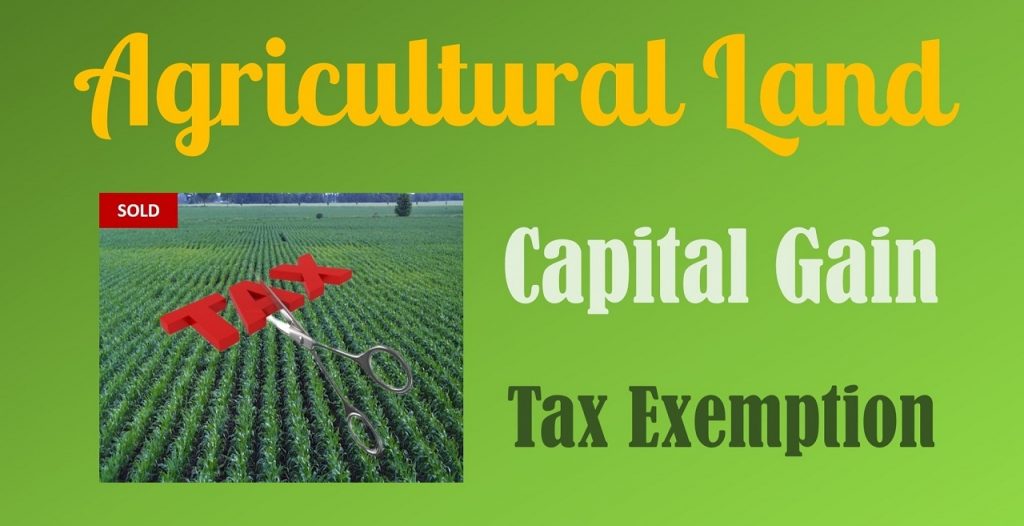Receipt of Unaccounted Income due to sale of Agricultural Land is not taxable

Receipt of unaccounted Income on sale of agricultural land is not taxable
Whether the Receipt of unaccounted Income on sale of agricultural land can be brought in taxation ambit as unaccounted income? The Matter was discussed in following case of Abraham Varghese in ITAT Cochin and it was ruled in assessee’s favor
The Case- Whether Receipt of unaccounted Income on sale of agricultural land is taxable- Income-tax Officer Vs Shri Abraham Varghese Charuvil (ITAT Cochin)
The fact of the Case:
The assessee is an individual. The income tax return was filed on 31/03/2015 for the assessment year 2013-14, declaring an income of Rupees 71,430. The returned filed by the assessee was taken up for scrutiny assessment under section 143(3) by the issuance of notice under section143(2) of the Income Tax Act. During the assessment proceedings, the assessee was asked to provide the details of the source of cash amounting to Rs. 80 Lakhs deposited in Federal Bank. The assessee through a letter stated (on 30/11/2015) that assessee and his wife had sold agricultural land for Rs.70,79,500 and the same was duly deposited in the Bank (Federal Bank) and balance cash deposits were out of the income of agricultural activities. The Assessing Officer found that proceeds from the sale of agricultural land are only Rs.30,59,500 as per sale deed. Therefore, the Assessing Officer held that the credit must be restricted to Rs.30,59,500. The Assessing Officer further provided credit for the income from agricultural activities of Rs.10,40,500/- declared in the income tax return and balance of Rs.39,00,000 was brought to income tax as undeclared and unexplained deposit under the head ‘income from other sources’.
Legal Position- Whether the money received on Sale of Agricultural land would be agricultural Income and exempt from Income Tax?
Any money arising out of the surplus on sale of an agricultural land would always constitute as the agricultural income. The consideration provided in the Sale Deed was the agricultural income. Similarly, “the on money” should also be considered as agricultural income. The assessee was an elderly person, who was settled in his native place.
The Counsel for assessee argued that assessee being elderly person had no means to generate unaccounted income other than from sale of agricultural land
The assessee was engaged in the agricultural activities along with his wife and there was no record to advocate that the assessee and his wife were in a position that they could generate an unaccounted income of Rs.39 lakhs other than on money on the account of sale of agricultural property.
In most of the part of the country, the on-money payment is an unfortunate practice, and no one can disagree with this factual situation. This is the case of the assessee that the buyers insisted on reducing the sale consideration, so the same can be disclosed in the registered sale deed and payment of stamp duty can be minimized. This contention of the assessee cannot be totally brushed aside.
In this context, it is highly important to refer section 68 of the Income Tax Act:

As per the section 68 of the Income Tax Act, where any amount of money is found to be credited in the books maintained by an assessee for any previous year, and the assessee fails to disclose the source or the nature thereof or the explanation provided by him is not satisfactory in the opinion of the AO, the amount of money so credited in the books of the assessee may be charged to income tax as an income of that previous year.
The above-mentioned section has application when assessee fails to disclose the source or nature thereof or the explanation provided by him is not satisfactory in the opinion of the AO. Further, by using the words “may be charged”, rather than “shall be charged, it is apparent that addition made under section 68 of the Income Tax Act is not mandatory. On the other side, the AO has to apply his own mind on evidence of each case and come to a decision whether the addition is warranted.
For the above reasoning, the court held that the order of the Commissioner of Income Tax (Appeals) is correct and in accordance with law and no interference is called for. In the result, the appeal filed by the revenue is dismissed.


 ITAT Amritsar: No Section 269SS Violation for One-Time Cash Payment Before Sub-Registrar
ITAT Amritsar: No Section 269SS Violation for One-Time Cash Payment Before Sub-Registrar  Tax Officials Unleash Digital Dragnet: How New Raid Powers Redefine Privacy, Property Rights in India and likely to Fuel Corruption
Tax Officials Unleash Digital Dragnet: How New Raid Powers Redefine Privacy, Property Rights in India and likely to Fuel Corruption  Income Tax Department Rewards for Reporting Tax Evasion: A Comprehensive Guide
Income Tax Department Rewards for Reporting Tax Evasion: A Comprehensive Guide  Forfeiture of Gratuity by Employer- What are the Remedies for an employee- Can employer be challenged?
Forfeiture of Gratuity by Employer- What are the Remedies for an employee- Can employer be challenged?  Employer can forfeit gratuity of an employee in case of moral turpitude
Employer can forfeit gratuity of an employee in case of moral turpitude  Diving Deeper: The Impact of the New Tax Bill on Dairy and Farming Income
Diving Deeper: The Impact of the New Tax Bill on Dairy and Farming Income